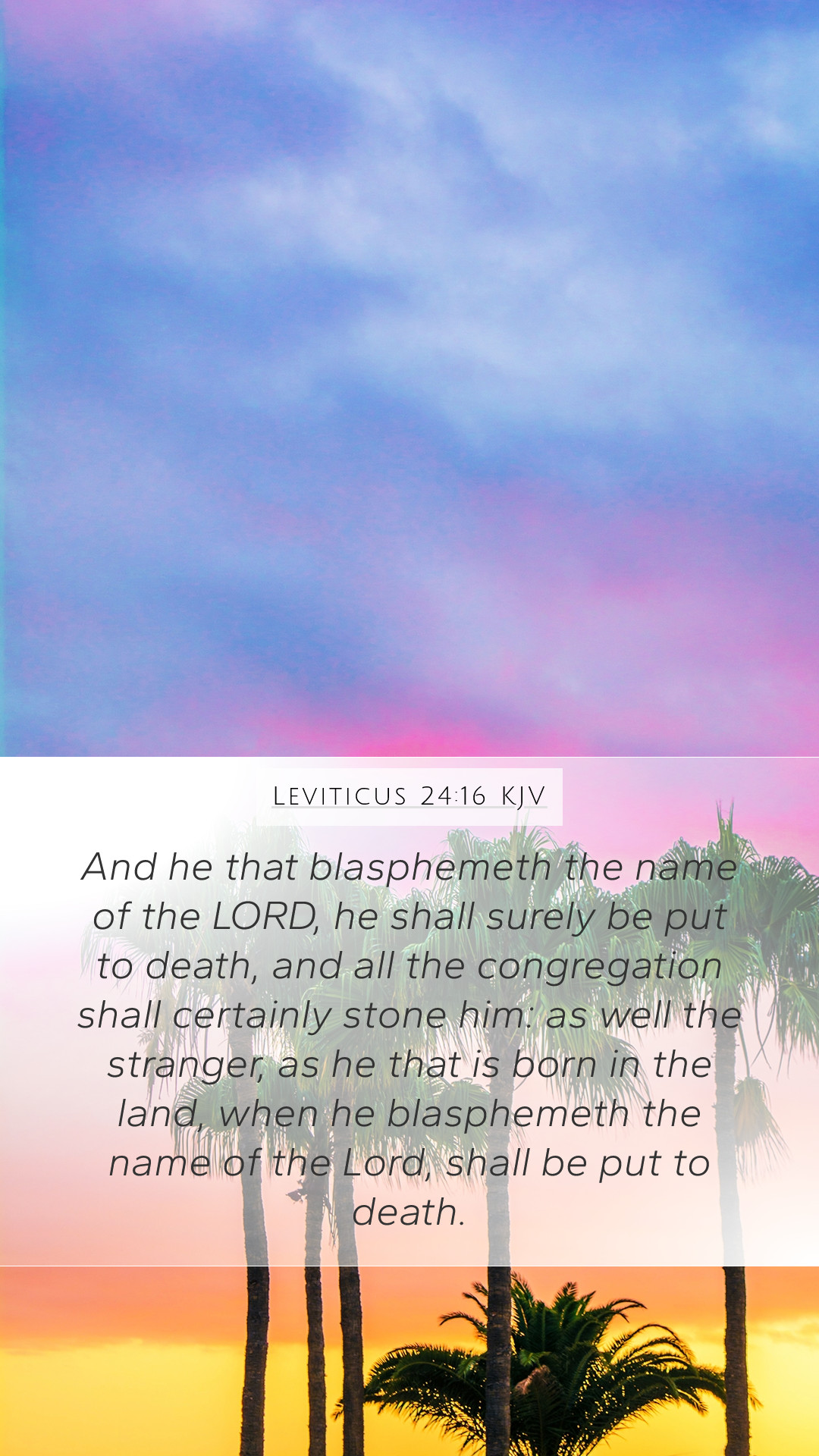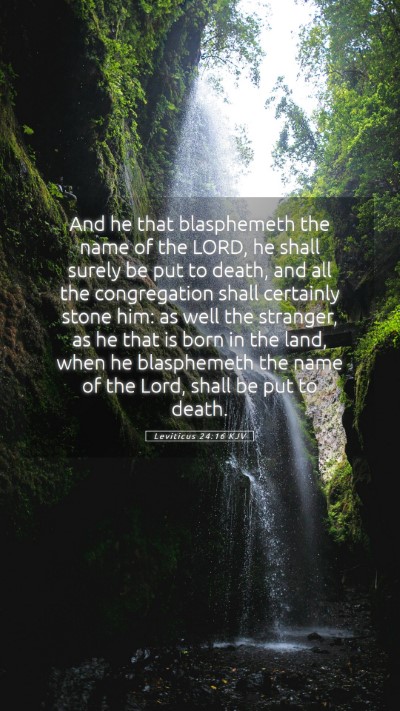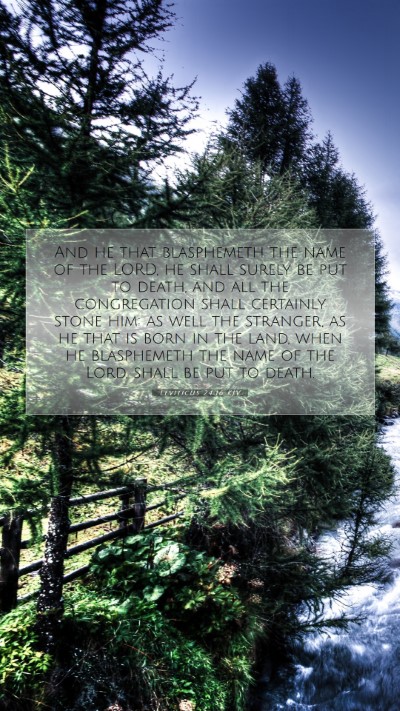Bible Verse Commentary: Leviticus 24:16
Verse: "And he that blasphemeth the name of the LORD, he shall surely be put to death, and all the congregation shall certainly stone him: as well the stranger, as he that is born in the land, when he blasphemeth the name of the LORD, shall be put to death."
Understanding the Verse
This verse is part of the Mosaic Law which outlines severe penalties for blasphemy against God. It emphasizes the gravity of disrespecting God's name and sets a standard for both natives and foreigners within the Israelite community.
Interpretation and Explanation
According to Matthew Henry, the penalty prescribed here is not simply retributive, but serves as a deterrent against evil. He points out that the sanctity of God's name is paramount, and the laws set forth in the Old Testament serve to uphold this sanctity. Such strict measures reflect God's demand for holiness among His people.
Albert Barnes amplifies this view by stating that the name of the Lord represents His character and authority. Blasphemy, therefore, is not merely a verbal affront but an affront to God's kingdom. The consequences, as stated, underscore the importance of preserving the holiness associated with God's name, highlighting that even strangers are not exempt from this divine law.
In addition, Adam Clarke further explains that the term 'blasphemy' here refers to a gross disrespect or slander against God's nature. The communal responsibility in executing the punishment indicates that maintaining reverence for God is a collective duty of the community, thus emphasizing unity in upholding divine standards.
Application and Significance
This verse challenges modern readers to consider the weight and significance of their words, especially when it pertains to God. The blasphemy outlined here underscores an essential aspect of Biblical exegesis: understanding the cultural and spiritual contexts of actions and their culminating consequences.
Furthermore, the historical context is crucial for understanding how social and religious laws were intertwined in ancient Israel. Such laws serve as a reminder as we engage in Bible study insights and discuss Bible study lessons about the nature of God and how His people should respond to His holiness.
As believers today, reflecting upon the seriousness of how we speak of God and our attitudes towards His nature can cultivate a deeper reverence and commitment to upholding His name in our communities.
Cross References
- Exodus 20:7 - "Thou shalt not take the name of the LORD thy God in vain; for the LORD will not hold him guiltless that taketh his name in vain."
- Leviticus 18:30 - "Therefore shall ye keep my ordinance, that ye commit not any one of these abominable customs, which were committed before you, and that ye defile not yourselves therein: I am the LORD your God."
- Numbers 15:35-36 - Discussion of the punishment for blasphemy, reiterating community responsibility.
Conclusion
In conclusion, Leviticus 24:16 provides a profound lesson on the importance of honoring God's name and the communal responsibility to uphold it. In studying and interpreting this verse, we gain not only historical insights but practical applications for our daily lives. As we explore this and other similar passages, we can cultivate a deeper understanding of Scripture and how it informs our walk with God.


